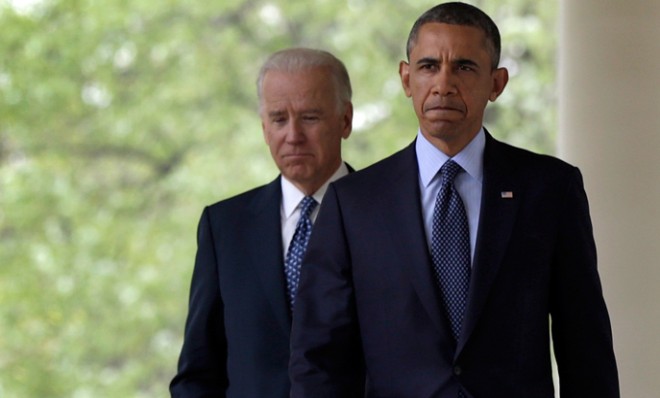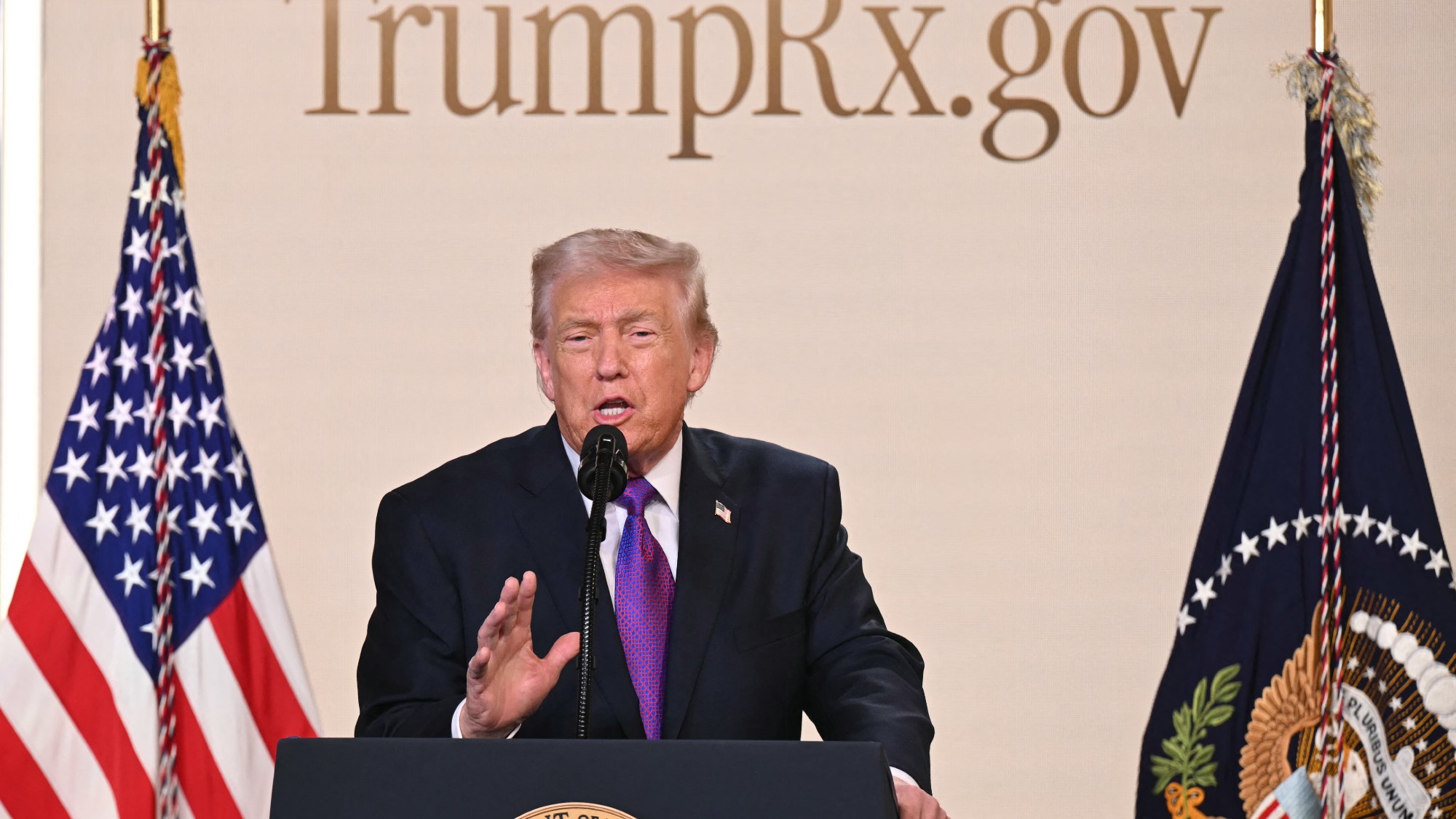How Obama could have avoided gun-control failure
In politics, words matter. And on gun control, the White House picked the wrong words.

A free daily email with the biggest news stories of the day – and the best features from TheWeek.com
You are now subscribed
Your newsletter sign-up was successful
90 percent.
That's a figure you've surely heard repeatedly over the past few weeks. After the background checks amendment failed, President Obama cited the figure five times. The figure was similarly seized on by Gabby Giffords, Jay Carney, former White House Chief of Staff Richard Daly, and Joe Scarborough. Oozing righteous indignation, proponents of gun control heaped shame on the members of the United States Senate who ignored the will of 90 percent of Americans and voted against an amendment calling for expanded background checks on the purchase of firearms. These pro-gun-control individuals invariably coupled the use of the 90 percent figure with a charge that seems to logically flow from the manner in which some lawmakers voted: The only explanation for why these senators did not vote for background checks was that they must be in the big, bad NRA's pocket. This observation undoubtedly contains more than a grain of truth. And yet, expanded background checks may well have become the law of the land had the president handled the debate differently.
Nine in 10 Americans may support more widespread background checks, but the reality remains that American citizens are far less supportive of something called "gun control." The clearest evidence of that trend is a USA Today poll that came out Tuesday. The poll showed that while 90 percent still support background checks, only 49 percent want Congress to pass a new gun control law, while almost as large a percentage (45 percent) oppose such regulations. There is a persistent disconnect between people's feelings about "gun control" and background checks — which is obviously a subset of gun control.
The Week
Escape your echo chamber. Get the facts behind the news, plus analysis from multiple perspectives.

Sign up for The Week's Free Newsletters
From our morning news briefing to a weekly Good News Newsletter, get the best of The Week delivered directly to your inbox.
From our morning news briefing to a weekly Good News Newsletter, get the best of The Week delivered directly to your inbox.
The White House's failure to recognize and act on the implications of this particular disconnect may have cost the country background checks. It was certainly the most important flaw in the way the White House went about selling additional firearms regulations to the country. Labels and rhetoric matter in politics. A lawmaker probably will not fear voting for "background checks" unless he or she fears that his opponents might seek to frame that vote for increased background checks as a vote for increased gun control. For exactly this reason, the White House made an immense blunder when it threw its support behind not only more expansive background checks, but also the renewal of the Assault Weapons Ban and limits on magazine capacity. That made it easy for opponents to conflate the issues in the minds of many Americans.
Plus, neither the assault weapons ban nor the magazine limits ever had any meaningful chance of becoming the law of the land. Even in the days immediately following Newtown, most educated observers knew this to be the case. Yet the White House pushed for these measures alongside the one proposal that did have a chance — background checks. In doing so, the White House created a conversation about unpopular "gun control" rather than a conversation about very popular "background checks."
In politics, words matter. And on gun control, the White House picked the wrong words. That enabled the NRA to mount a public relations war against a more abstract enemy: a gun control agenda that included two provisions that many Americans genuinely do not approve of.
Had the White House merely gone for background checks, the NRA would have had a difficult time convincing anyone that the president was a typical liberal trying to take away the rights of gun owners. Indeed, if the president had just gone for magazine restrictions (which I find reasonable) along with background checks, it would have been a less vitriolic debate. But the assault weapons ban — gun owners hate the assault weapons ban. They view it as the embodiment of the liberal crusade to take away gun rights.
A free daily email with the biggest news stories of the day – and the best features from TheWeek.com
Publicly opposing Sen. Feinstein's crusade to re-enact the AWB and refusing to ask for magazine limits would have been unpopular with the left, and perhaps even with the center left, but it would have given the White House credibility with gun owners who have come to expect the same regulatory push after every big shooting. More importantly, it would have focused the debate on a very specific reform proposal that is widely supported by the public. That focus would have changed the nature of the debate and the conversation, and perhaps, just perhaps, it would have given the bill a chance.
But, as it was, by the time this bill came time to a vote, the debate had been so vitriolic and so accusatory on both sides that nothing had a shot in hell of becoming law. And since that was the case, can anyone really blame a senator for not risking his job to vote for something that won't pass the House, anyway?
Jeb Golinkin is an attorney from Houston, Texas. You can follow him on twitter @jgolinkin.
-
 Democrats seek calm and counterprogramming ahead of SOTU
Democrats seek calm and counterprogramming ahead of SOTUIN THE SPOTLIGHT How does the party out of power plan to mark the president’s first State of the Union speech of his second term? It’s still figuring that out.
-
 Climate change is creating more dangerous avalanches
Climate change is creating more dangerous avalanchesThe Explainer Several major ones have recently occurred
-
 What’s TrumpRx and who is it for?
What’s TrumpRx and who is it for?The Explainer The new drug-pricing site is designed to help uninsured Americans
-
 The billionaires’ wealth tax: a catastrophe for California?
The billionaires’ wealth tax: a catastrophe for California?Talking Point Peter Thiel and Larry Page preparing to change state residency
-
 Bari Weiss’ ‘60 Minutes’ scandal is about more than one report
Bari Weiss’ ‘60 Minutes’ scandal is about more than one reportIN THE SPOTLIGHT By blocking an approved segment on a controversial prison holding US deportees in El Salvador, the editor-in-chief of CBS News has become the main story
-
 Has Zohran Mamdani shown the Democrats how to win again?
Has Zohran Mamdani shown the Democrats how to win again?Today’s Big Question New York City mayoral election touted as victory for left-wing populists but moderate centrist wins elsewhere present more complex path for Democratic Party
-
 Millions turn out for anti-Trump ‘No Kings’ rallies
Millions turn out for anti-Trump ‘No Kings’ ralliesSpeed Read An estimated 7 million people participated, 2 million more than at the first ‘No Kings’ protest in June
-
 Ghislaine Maxwell: angling for a Trump pardon
Ghislaine Maxwell: angling for a Trump pardonTalking Point Convicted sex trafficker's testimony could shed new light on president's links to Jeffrey Epstein
-
 The last words and final moments of 40 presidents
The last words and final moments of 40 presidentsThe Explainer Some are eloquent quotes worthy of the holders of the highest office in the nation, and others... aren't
-
 The JFK files: the truth at last?
The JFK files: the truth at last?In The Spotlight More than 64,000 previously classified documents relating the 1963 assassination of John F. Kennedy have been released by the Trump administration
-
 'Seriously, not literally': how should the world take Donald Trump?
'Seriously, not literally': how should the world take Donald Trump?Today's big question White House rhetoric and reality look likely to become increasingly blurred